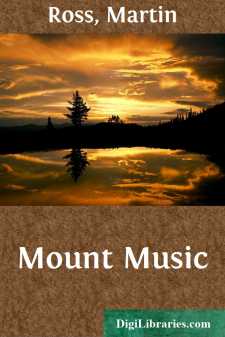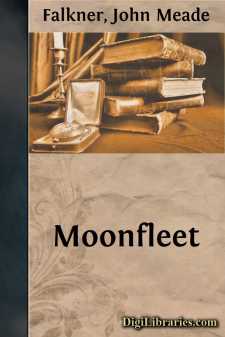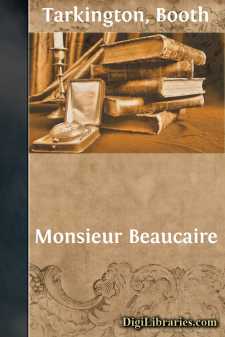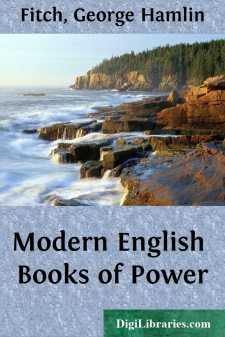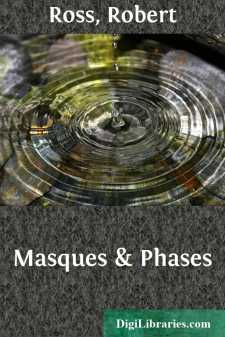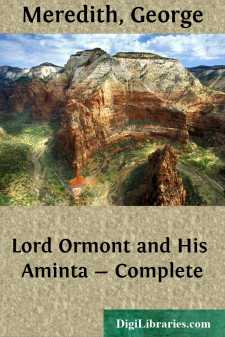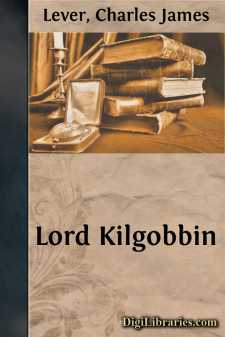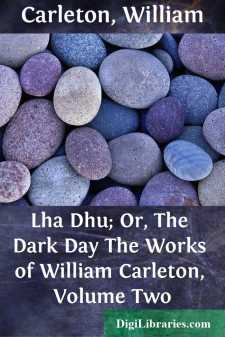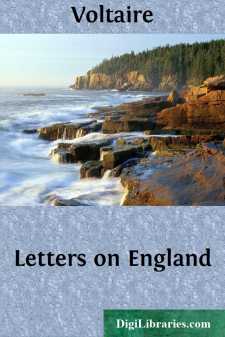Literary Collections
- American 84
- Ancient, Classical & Medieval 14
- Asian 1
- Australian & Oceanian 1
- Canadian 55
- Continental European 121
- English, Irish, Scottish, Welsh
- Essays 160
- General 24
- Letters 46
- Middle Eastern 1
English, Irish, Scottish, Welsh Books
Sort by:
by:
Martin Ross
CHAPTER I "Christian, dost them see them?" sang an elder brother, small enough to be brutal, large enough to hurt, while he twisted Christian's arm as though it were indeed the rope that it so much resembled. "I won't say I saw them, because I didn't!" replied Christian, who had ceased to struggle, but was as far as ever from submission; "but if I had, you might twist...
more...
CHAPTER 1 IN MOONFLEET VILLAGE So sleeps the pride of former days—More The village of Moonfleet lies half a mile from the sea on the right or west bank of the Fleet stream. This rivulet, which is so narrow as it passes the houses that I have known a good jumper clear it without a pole, broadens out into salt marshes below the village, and loses itself at last in a lake of brackish water. The lake is...
more...
by:
Booth Tarkington
Chapter One The young Frenchman did very well what he had planned to do. His guess that the Duke would cheat proved good. As the unshod half-dozen figures that had been standing noiselessly in the entryway stole softly into the shadows of the chamber, he leaned across the table and smilingly plucked a card out of the big Englishman's sleeve. "Merci, M. le Duc!" he laughed, rising and...
more...
Introduction My aim in this little book has been to give short sketches and estimates of the greatest modern English writers from Macaulay to Stevenson and Kipling. Omissions there are, but my effort has been to give the most characteristic writers a place and to try to stimulate the reader's interest in the man behind the book as well as in the best works of each author. Too much space is devoted...
more...
by:
Robert Ross
It is a common error to confuse the archæologist with the mere collector of ignoble trifles, equally pleased with an unusual postage stamp or a scarce example of an Italian primitive. Nor should the impertinent curiosity of local antiquaries, which sees in every disused chalk-pit traces of Roman civilisation, be compared with the rare predilection requisite for a nobler pursuit. The archæologist...
more...
by:
George Meredith
CHAPTER I. LOVE AT A SCHOOL A procession of schoolboys having to meet a procession of schoolgirls on the Sunday's dead march, called a walk, round the park, could hardly go by without dropping to a hum in its chatter, and the shot of incurious half-eyes the petticoated creatures—all so much of a swarm unless you stare at them like lanterns. The boys cast glance because it relieved their...
more...
CHAPTER I KILGOBBIN CASTLE Some one has said that almost all that Ireland possesses of picturesque beauty is to be found on, or in the immediate neighbourhood of, the seaboard; and if we except some brief patches of river scenery on the Nore and the Blackwater, and a part of Lough Erne, the assertion is not devoid of truth. The dreary expanse called the Bog of Allen, which occupies a tableland in the...
more...
BOOK the Third. CHAP. I. Shews in what manner anger and revenge operate on the mind, and how ambition is capable of stifling both, in a remarkable instance, that private injuries, how great soever, may seem of no weight, when public grandeur requires they should be looked over. Nothing is so violent as anger in its first emotions, it takes the faculties by surprize, and rushes upon the soul like an...
more...
by:
William Carleton
There is no country in the world whose scenery is more sweetly diversified, or more delicately shaded away into that exquisite variety of surface which presents us with those wavy outlines of beauty that softly melt into each other, than is that of our own green island. Alas! how many deep valleys, wild glens, green meadows, and pleasant hamlets, lie scattered over the bosom of a country, peopled by...
more...
by:
Voltaire
INTRODUCTION François Marie Arouet, who called himself Voltaire, was the son of François Arouet of Poitou, who lived in Paris, had given up his office of notary two years before the birth of this his third son, and obtained some years afterwards a treasurer’s office in the Chambre des Comptes. Voltaire was born in the year 1694. He lived until within ten or eleven years of the outbreak of the...
more...


